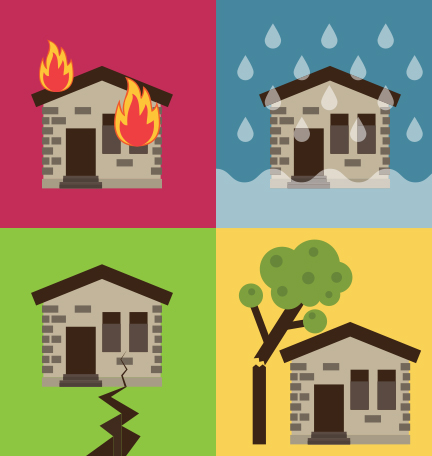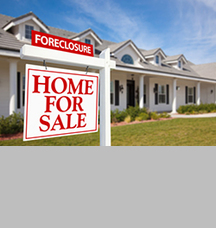Shopping for homeowners insurance can be complicated. Here’s how to find the best home insurance policy for your needs.
Looking for homeowners insurance for your new house or re-evaluating your existing insurance policy? Here’s everything you need to consider when purchasing a home insurance policy.
Your Coverage Needs
“Coverage” refers to the amount of loss, damage, or liability that your homeowners insurance policy will cover. Start by calculating how much you’d need to pay if you lost everything. Typically, many insurance companies require coverage for at least 80% of your home’s value, however, many people choose to cover more than the full value of their home.
A good rule of thumb is to obtain enough insurance to cover the labor and materials needed to rebuild your home — which is not always the same as the market value of your home. For example, if your home is lost in a fire, you’d also need to cover the cost of demolition and debris removal.
Actual Cash Value vs. Replacement Cost
When reviewing an insurance policy, it’s important to consider whether the contents portion of the policy is adequate for your needs. There are two main options to choose from: replacement cost or actual cash value. Replacement cost gives you the money to replace items, whereas actual cash value only covers what your items are worth at the time of loss.
For example, let’s say you own a large number of electronics — several flat screen TVs, a gaming setup, an expensive laptop, a state-of-the-art home stereo system, and so on. While those items would likely be expensive to replace, they also tend to depreciate in value quite fast, meaning that their actual cash value might be lower than you’d anticipate. In this scenario, you might wish to consider a policy that will cover the replacement value.
Additional Coverage Needs
When shopping for home insurance, be sure to consider other coverage needs, such as additional living expenses. For example, if you were forced to vacate your home due to a flood, the out-of-pocket expenses could add up quite fast. Some policies cover the cost of temporary lodging and other living expenses for your family if you’re forced to vacate your home.
You’ll also want to ensure the amount of liability coverage is right for your needs. This type of coverage can protect you financially against lawsuits if you or your family causes property damage or injury to others. You should also look to see if your policy will cover medical expenses if a guest is injured on your property. If you have a large, active family or frequently entertain guests, it’s a good idea to ensure your policy provides enough coverage.
Understand Your Deductible
Last but not least, it’s important to carefully consider your policy’s deductible. The deductible is the amount of money you’re responsible for paying out-of-pocket before your insurance kicks in. Would you prefer a flat rate, or a rate based on a percentage of the home’s insured value? While higher deductibles usually correspond with a lower monthly or annual premium, it could also result in high out-of-pocket expenses should disaster occur.
Additional Riders
Depending on where you live, your home may be more exposed to certain natural disasters or other damage. Consider adding the following riders to your homeowners insurance policy:
- Flood insurance: All homeowners should consider whether flood insurance is needed, even if they don’t live in a mapped high-risk flood area.
- Earthquake, tornado, or hurricane coverage: Find out if this makes sense in your area.
- Other riders: Consider coverage for water or sewer backup, personal injury, loss assessment, ID fraud, equipment breakdown, pet liability, and theft (such as of jewelry and antiques).
Consider Umbrella Coverage
Some homeowners also purchase umbrella insurance as an added layer of protection. Umbrella insurance can provide an extra level of security for your family when medical, legal, and property damages extend beyond what your home insurance policy covers. Learn more about the benefits of umbrella insurance coverage and find out if it’s the right choice for you.
When you’re looking for home insurance, it’s important to understand what coverage you need in your policy so you’re ready for anything that comes your way.










